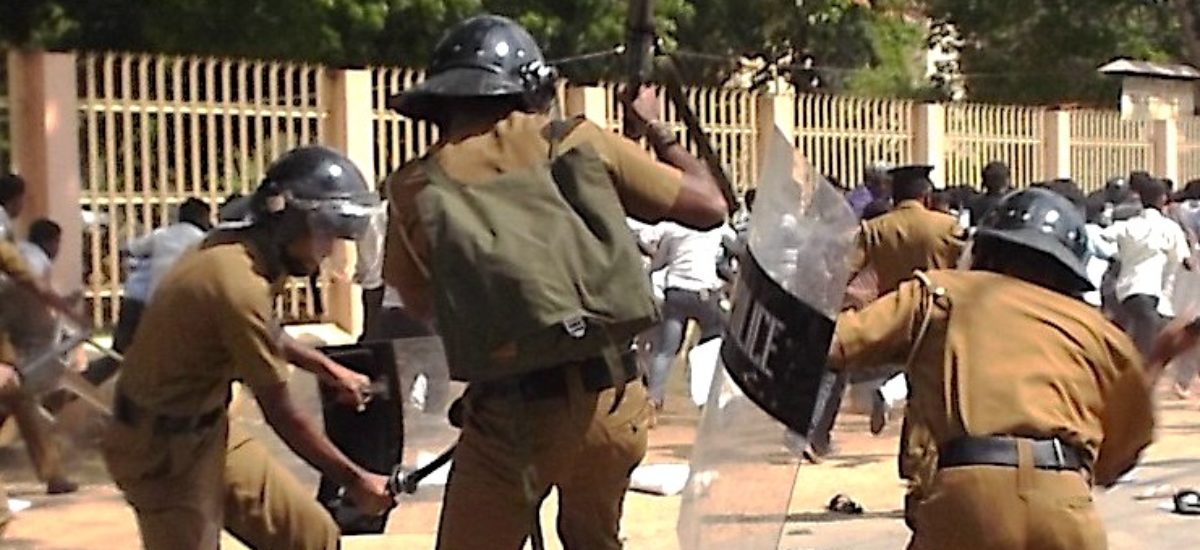Photo courtesy of Sri Lanka Brief
Brutality and corruption in Sri Lanka’s law enforcement are perennial issues. However with the government coming under increasing scrutiny, the cracks in the already fractured system are in the spotlight. Recent developments have exposed the drastically increasing violation of human rights and misogyny within the system. The manhandling of female police officers and the torture and electrocution of 10 years olds by the police have caught the attention of the Human Rights Commission of Sri Lanka, which has summoned the Inspector General of the Police to investigate the repeated human rights violations committed by police officers.
According to Member of Parliament, M.A. Sumanthiran, Sri Lanka is one of the worst countries for torture by the police. The institution that civilians look to for security is in fact the very institution that is propagating fear, deep distrust and murder. In the name of the Prevention of Terrorism Act (PTA) – implemented as a temporary instrument of counter terrorism law in 1979 – arbitrary arrests were made of peaceful protesters and young journalists who report dissenting views of the government and the civil service. Convener of the Inter-University Students Federation, Wasantha Mudalige, was arrested under the PTA for 90 days. A series of arrests that have been made in the last few months such as that of Tharindu Jayawardhana who was subject to arbitrary arrest and a six hour interrogation by the CID.
In 2022 alone over 1,200 complaints were filed on trumped up charges, abuse of power, assault and torture. But there is nothing substantive that is being done to address these issues. Every supposed investigation being carried out into these civil and human rights violations are being conducted by the Police Commission, thereby decreasing the efficacy of accountability. There cannot be an objective and impartial investigation that will be produced if the police investigate their own. In a peace time society where there is no urgency for high national security, overusing and abusing the PTA comes as a violation of fundamental human rights and crimes against humanity. I will reiterate the point that Sri Lanka has a long history of entrenching injustice and abuse of power in the system.
Reports of corporal punishment by teachers and police subjecting 10 year olds to electrocution show that not even children are exempt from torture.
Since the beginning of this year, there has been a wave of arrests of peaceful protesters. According to the Police Ordinance, protesters have to notify the police not obtain permission from the police; there is a big difference.
The police are still operating under a Police Ordinance drafted in 1895. Why can’t we amend these laws? Dr. Gehan Gunatilleke, an attorney specialising in constitutional law, thinks that Sri Lanka has a history of operating on archaic law; for example, during the outbreak of the COVID-19 pandemic in 2020, Sri Lanka began to function on a quarantine law ratified in the 1800s. Dr. Gunatilleke pointed out that the larger issue is the misinterpretation of the specifics of the Police Ordinance to enhance their power over civil society.
In addition to this, the entrenched impunity in the system allows that law enforcement that trespasses on the boundaries of human rights is not held accountable. Where does the rot start? It starts at the top. The issue of a lack of accountability percolates from the top of the pyramid and flows into the very institutions that are responsible for the protection of civil society.


